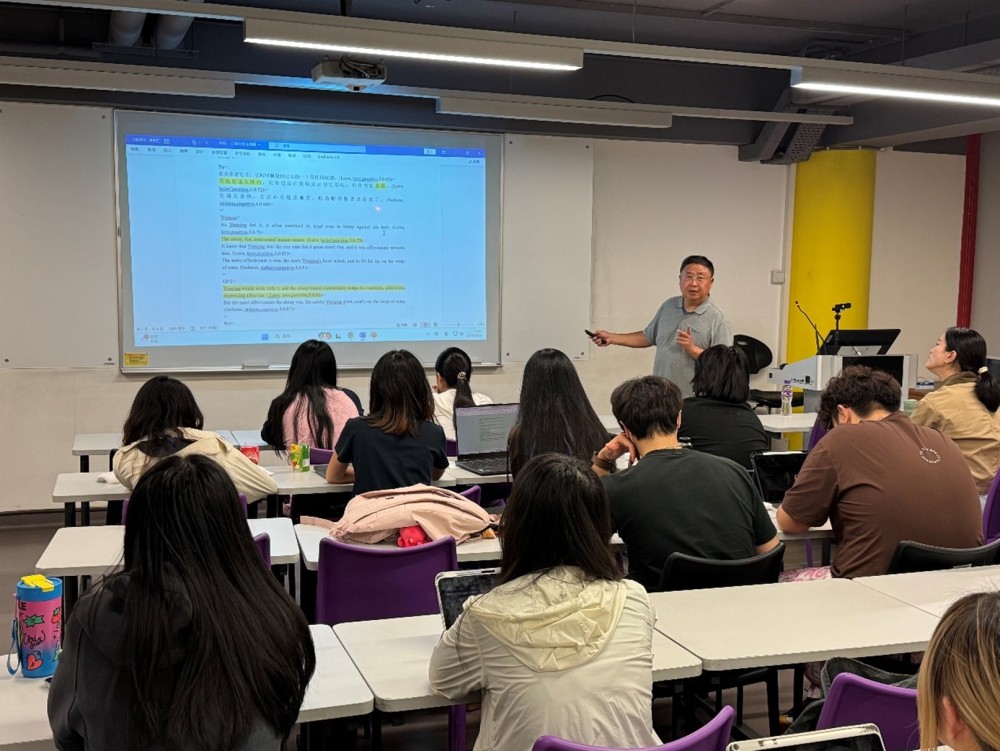On November 6, 2025, Professor Ping Wu from the School of English and International Studies at Beijing Language and Culture University was invited to the Faculty of Humanities and Social Sciences at City University of Macau to deliver an academic lecture titled “LATEA Framework: Emotion Analysis Based on Large Language Models and Appraisal Theory” for undergraduate students. Using multi-version translations of Yu Hua's novel To Live as a case study, Professor Wu systematically demonstrated how to integrate cutting-edge AI technology with classical linguistic theories to conduct interdisciplinary research. The lecture showcased innovative applications of Appraisal Theory in analyzing emotional reproduction in literary translation, comparing human translation with machine translations (GPT-4o and ERNIE-4) across three dimensions: Attitude, Engagement, and Graduation systems.
The lecture fully exemplified the practical value of applying linguistic theory to real-world research, presenting students with a new paradigm for linguistic studies in the digital humanities era. Professor Wu emphasized that large language models should not be treated merely as technical tools, but must be combined with solid theoretical foundations to produce academically rigorous results. The LATEA framework integrates computational methods with Appraisal Theory, achieving a balance between quantitative analysis and qualitative interpretation, and providing a replicable and verifiable research methodology for cross-cultural literary studies. The lecture sparked strong interest among faculty and students in AI-assisted linguistic research, offering fresh insights for advancing interdisciplinary work between linguistics and artificial intelligence.


 Search
Search Language
Language 